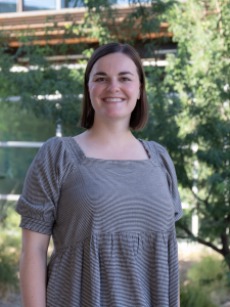
Sarah Matthews is a doctoral candidate in the Department of Slavic Languages and Literatures at the University of Southern California. Her dissertation compares the poetry of Vladislav Khodasevich and T.S. Eliot in the context of European Modernism. She argues that their poetry is a unique lens to reexamine and redefine the relation of the material and the metaphysical. At the University of Southern California, she was awarded the Teresa Wilson Endowed Fellowship for her dissertation and the Teaching Excellence Award for Assistant Lecturers from the Center of Languages and Cultures for her work as an instructor of the Russian language. She is passionate about teaching Slavic language and cultural courses. Sarah earned her master’s degree in Slavic Languages and Literatures from the University of Southern California in 2021 and two bachelor’s degrees in Russian and English from Brigham Young University in 2019. Her current research interests include Russian poetry, Polish poetry, English poetry, Modernism, ecopoetry, environmental humanities, comparative literature, formalism, structuralism, and religion.

